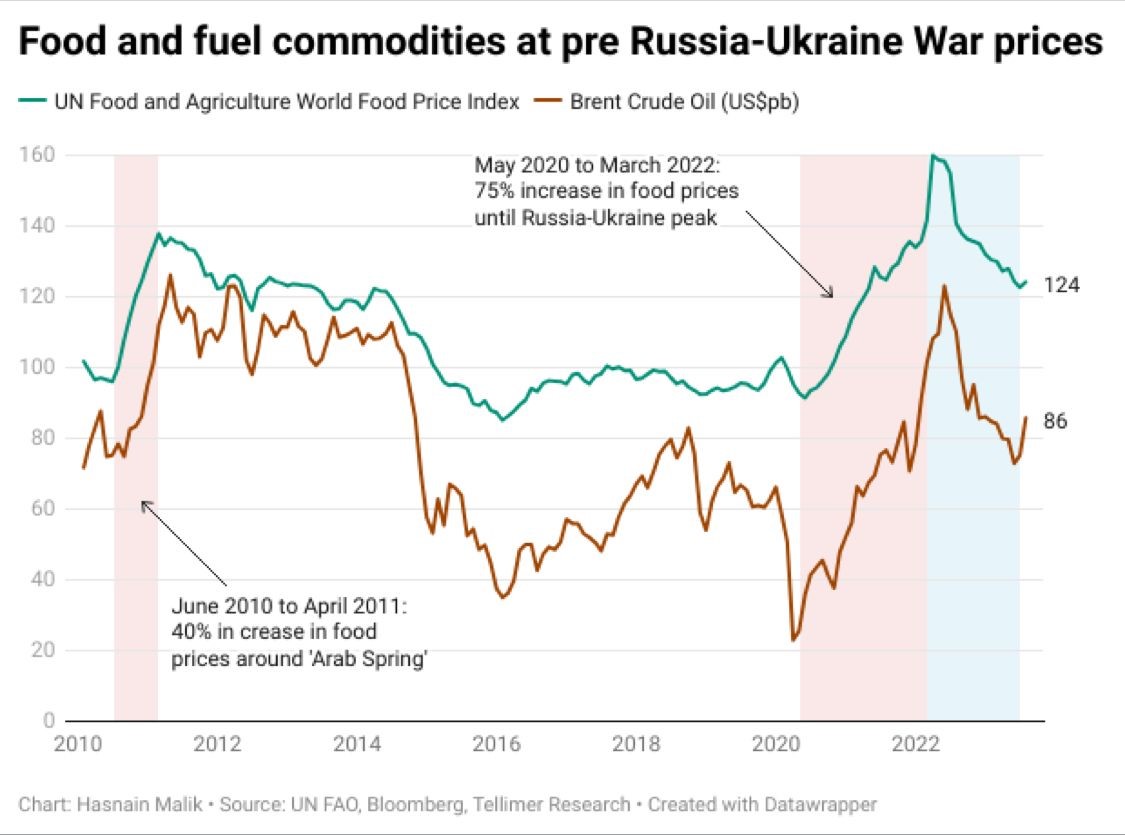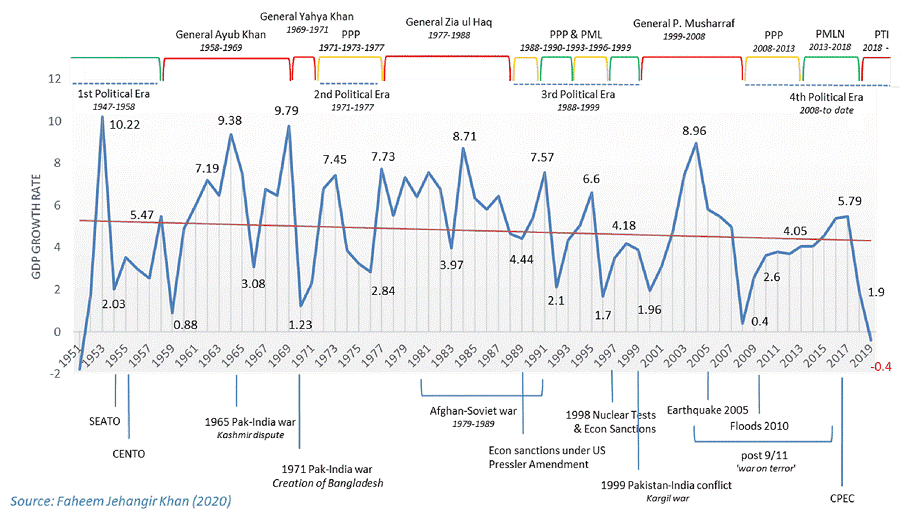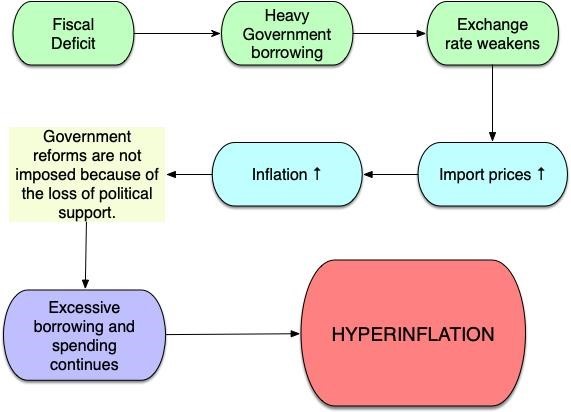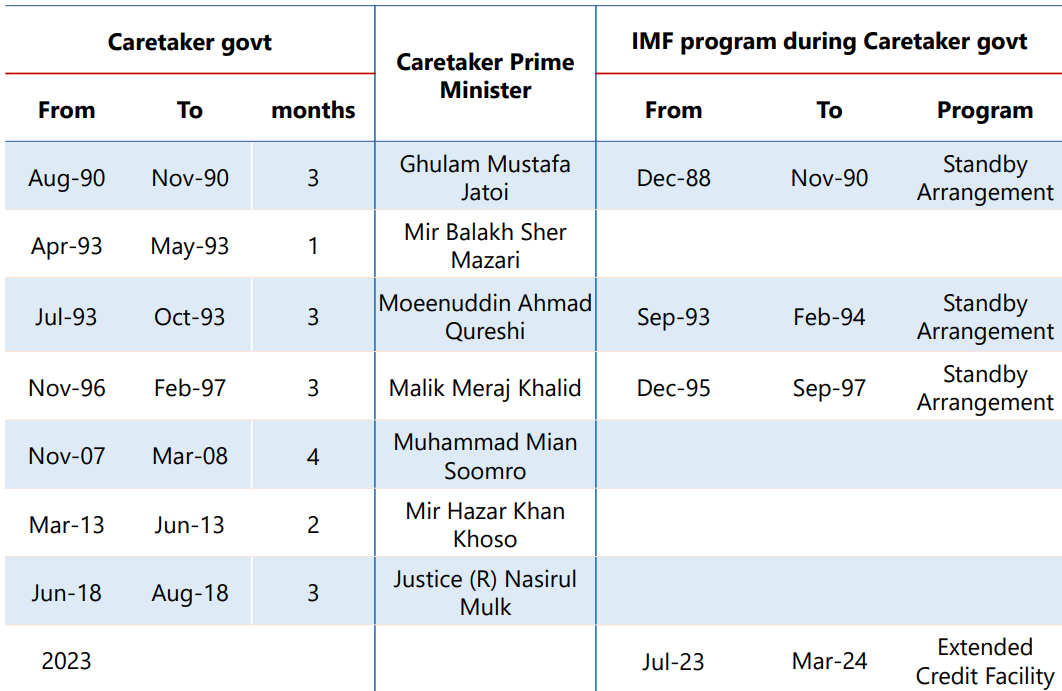
Prime Minister of Pakistan Shehbaz Sharif, has hinted towards the possibility of dissolving parliament shortly before his term concludes, subsequent to the imprisonment of former Prime Minister Imran Khan on corruption charges. There is speculation that both federal and provincial elections could be postponed until the next year due to concerns surrounding the availability of updated census data.
The extension of the election timeline could provide the caretaker government with additional time to fulfill the terms agreed upon with the International Monetary Fund (IMF). However, it is expected that economic challenges will persist, particularly due to the global food and fuel price crisis putting pressure on emerging markets. Domestically, there will likely be tighter conditions due to external debt pressures and currency devaluation. Therefore, it is worth assessing what lies ahead for the incoming officeholders, taking into consideration factors such as the IMF situation.

Source: Tellimer
However, before delving into that matter, it is important to understand what the previously elected governments were able to deliver in their tenure.
Flawed intentions
The current crisis in Pakistan’s economy can be attributed in part to the irresponsible fiscal behavior of successive governments. Each administration has prioritized short-term political gains over long-term economic sustainability, leading to the current state of affairs.

Graph Source: PIDE
The historic systematic fault lines began to re-emerge during the last year of the PTI government, with inflation rising and the fiscal deficit increasing. The government sought assistance from the IMF through a bailout package, but as Imran Khan’s ouster became inevitable, the PTI administration torpedoed the deal by announcing an unfunded energy subsidy, leaving incoming officeholders to face the consequences.
However, the situation was similar when the PTI took office in 2018. They inherited a massive fiscal deficit of approximately $20 billion and a currency crisis from the previous PML-N government.

Source: Econfix
The Caretakers
The process of appointing a caretaker government involves the following steps. First, consensus is sought between the existing Leaders of the House and the Leader of the Opposition to select the Caretaker Prime Minister and Chief Ministers of all provinces. If consensus cannot be reached, a committee is formed with members from both the ruling government and opposition benches to make the selection. In case the committee also fails to reach a consensus, the matter is then referred to the Chief Election Commissioner.

Source: JS Global
According to the report "Caretaker government 2023" by JS Global, equity market investors have generally responded positively to macro reform measures implemented during previous caretaker governments. As during multiple caretaker tenure markets experienced gains, with the KSE100 Index recording an average increase in the low double-digits.

Source: JS Global
This time around, however, there is an additional caveat of the IMF Standby Agreement (SBA) on which future assistance from the Fund is also dependent. The incoming setup would be the first since 1997 to inherit an existing IMF program.
“Beyond the interim regime (assuming it ends within the normal 3 months as witnessed in the past), we believe investors will look forward to the new government’s urgency to enter into a longer tenor IMF program, post expiry of ongoing SBA in March 2023 – once again, in order to continue to assure Pakistan’s external gross financing needs are met with uninterrupted and timely external inflows,” read the JS report.
“Continuity of market-based PKR/US$ rate determination, keeping the gap between interbank and open-market rate within 1.25% to comply with IMF’s recommendations is widely expected. On the monetary tightening side, where the country has already witnessed its sharpest monetary tightening cycle in the last 2 years, reaching to record high Policy Rate of 22%, the last monetary policy meeting decided on a pause given forward looking real interest rates on SBP’s estimates, now seem in the green zone. Barring any unforeseen inflation spike during the Caretaker set up, we expect Policy Rate to remain intact,” the report further added.
The transition to the upcoming Caretaker Cabinet is expected to be smooth, according to analysts. However, they stress the significance of clarity surrounding the government's commitment to ongoing reforms. A seamless transition to a new government plays a crucial role in bolstering investor confidence. Moreover, if the regime remains aligned with IMF-recommended reforms and ensures uninterrupted external financial support, market sentiments are likely to experience further improvement.
The extension of the election timeline could provide the caretaker government with additional time to fulfill the terms agreed upon with the International Monetary Fund (IMF). However, it is expected that economic challenges will persist, particularly due to the global food and fuel price crisis putting pressure on emerging markets. Domestically, there will likely be tighter conditions due to external debt pressures and currency devaluation. Therefore, it is worth assessing what lies ahead for the incoming officeholders, taking into consideration factors such as the IMF situation.

Source: Tellimer
However, before delving into that matter, it is important to understand what the previously elected governments were able to deliver in their tenure.
Flawed intentions
The current crisis in Pakistan’s economy can be attributed in part to the irresponsible fiscal behavior of successive governments. Each administration has prioritized short-term political gains over long-term economic sustainability, leading to the current state of affairs.

Graph Source: PIDE
The historic systematic fault lines began to re-emerge during the last year of the PTI government, with inflation rising and the fiscal deficit increasing. The government sought assistance from the IMF through a bailout package, but as Imran Khan’s ouster became inevitable, the PTI administration torpedoed the deal by announcing an unfunded energy subsidy, leaving incoming officeholders to face the consequences.
However, the situation was similar when the PTI took office in 2018. They inherited a massive fiscal deficit of approximately $20 billion and a currency crisis from the previous PML-N government.

Source: Econfix
The Caretakers
The process of appointing a caretaker government involves the following steps. First, consensus is sought between the existing Leaders of the House and the Leader of the Opposition to select the Caretaker Prime Minister and Chief Ministers of all provinces. If consensus cannot be reached, a committee is formed with members from both the ruling government and opposition benches to make the selection. In case the committee also fails to reach a consensus, the matter is then referred to the Chief Election Commissioner.

Source: JS Global
According to the report "Caretaker government 2023" by JS Global, equity market investors have generally responded positively to macro reform measures implemented during previous caretaker governments. As during multiple caretaker tenure markets experienced gains, with the KSE100 Index recording an average increase in the low double-digits.

Source: JS Global
This time around, however, there is an additional caveat of the IMF Standby Agreement (SBA) on which future assistance from the Fund is also dependent. The incoming setup would be the first since 1997 to inherit an existing IMF program.
“Beyond the interim regime (assuming it ends within the normal 3 months as witnessed in the past), we believe investors will look forward to the new government’s urgency to enter into a longer tenor IMF program, post expiry of ongoing SBA in March 2023 – once again, in order to continue to assure Pakistan’s external gross financing needs are met with uninterrupted and timely external inflows,” read the JS report.
“Continuity of market-based PKR/US$ rate determination, keeping the gap between interbank and open-market rate within 1.25% to comply with IMF’s recommendations is widely expected. On the monetary tightening side, where the country has already witnessed its sharpest monetary tightening cycle in the last 2 years, reaching to record high Policy Rate of 22%, the last monetary policy meeting decided on a pause given forward looking real interest rates on SBP’s estimates, now seem in the green zone. Barring any unforeseen inflation spike during the Caretaker set up, we expect Policy Rate to remain intact,” the report further added.
The transition to the upcoming Caretaker Cabinet is expected to be smooth, according to analysts. However, they stress the significance of clarity surrounding the government's commitment to ongoing reforms. A seamless transition to a new government plays a crucial role in bolstering investor confidence. Moreover, if the regime remains aligned with IMF-recommended reforms and ensures uninterrupted external financial support, market sentiments are likely to experience further improvement.

